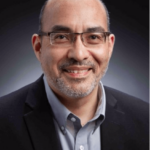Course Description

Using a systems-thinking and engineering approach, participants in Johns Hopkins Engineering Lifelong Learning Healthcare Systems Engineering and Thinking course will learn to define, parse, and articulate solutions to existing and anticipated healthcare challenges in a variety of settings and ecosystems. You’ll learn to understand different intervention concepts, archetypes, and frameworks that can be applied to solve the most pressing healthcare challenges.
Key Takeaways
Learning objectives will be realized through the process of creating enduring healthcare change. Specific use cases will apply baseline knowledge and approaches to create change that enables remote care in large-scale health events (LSHE) where immediate on-site care is not possible. Given the ways COVID-19 exposed the frailties of the global healthcare system, as well as its impact on emerging healthcare innovations, this is a particularly timely objective.
Differentiate systems thinking, engineering terms and concepts.
Enumerate systems methods to better impact change in healthcare challenges.
Describe healthcare systems and their components in an ecosystem.
Map public health challenges to systems frameworks to address risks.
Identify technology and process possibilities to address and improve healthcare systems.
Prerequisites
It is recommended that participants have at least seven to ten years of experience working in healthcare or a systems-related field, as well as at least three to five years of experience in a leadership role so they can make an impact on their organization’s long-term strategy as well as contribute to the program’s team learning objectives. It is also recommended that participants have at least a bachelor’s degree in systems, science, business, or healthcare field as well, as it will better enable the learning and application of the course’s concepts.
Who Should Take this Course
Policies
- Johns Hopkins Engineering Lifelong Learning courses do not offer academic credit.
- Learners will have view only access to online materials for 1 year after the conclusion for the course.
- Additional policies are available on the Johns Hopkins Lifelong Learning Policies page.






